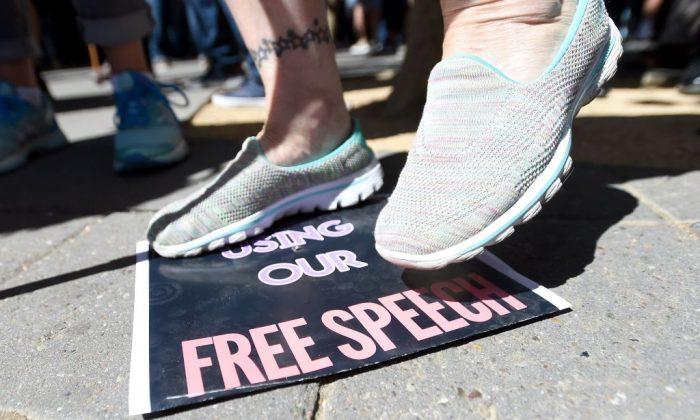Free speech group “Speech First” has filed a petition in the U.S. Supreme Court to review whether bias-response teams at universities violate the free speech rights of students.
“Hundreds of universities have a ‘bias-response team’—an official entity that solicits reports of bias, tracks them, investigates them, asks to meet with the perpetrators, and threatens to refer students for formal discipline,” the Aug. 14 petition (pdf) states. “Universities formally define ‘bias’ to cover wide swaths of protected speech. Bias-response teams are staffed by administrators, disciplinarians, and even police officers—a literal speech police.” The petition talked about the bias intervention response team (BIRT) set up at Virginia Tech.





